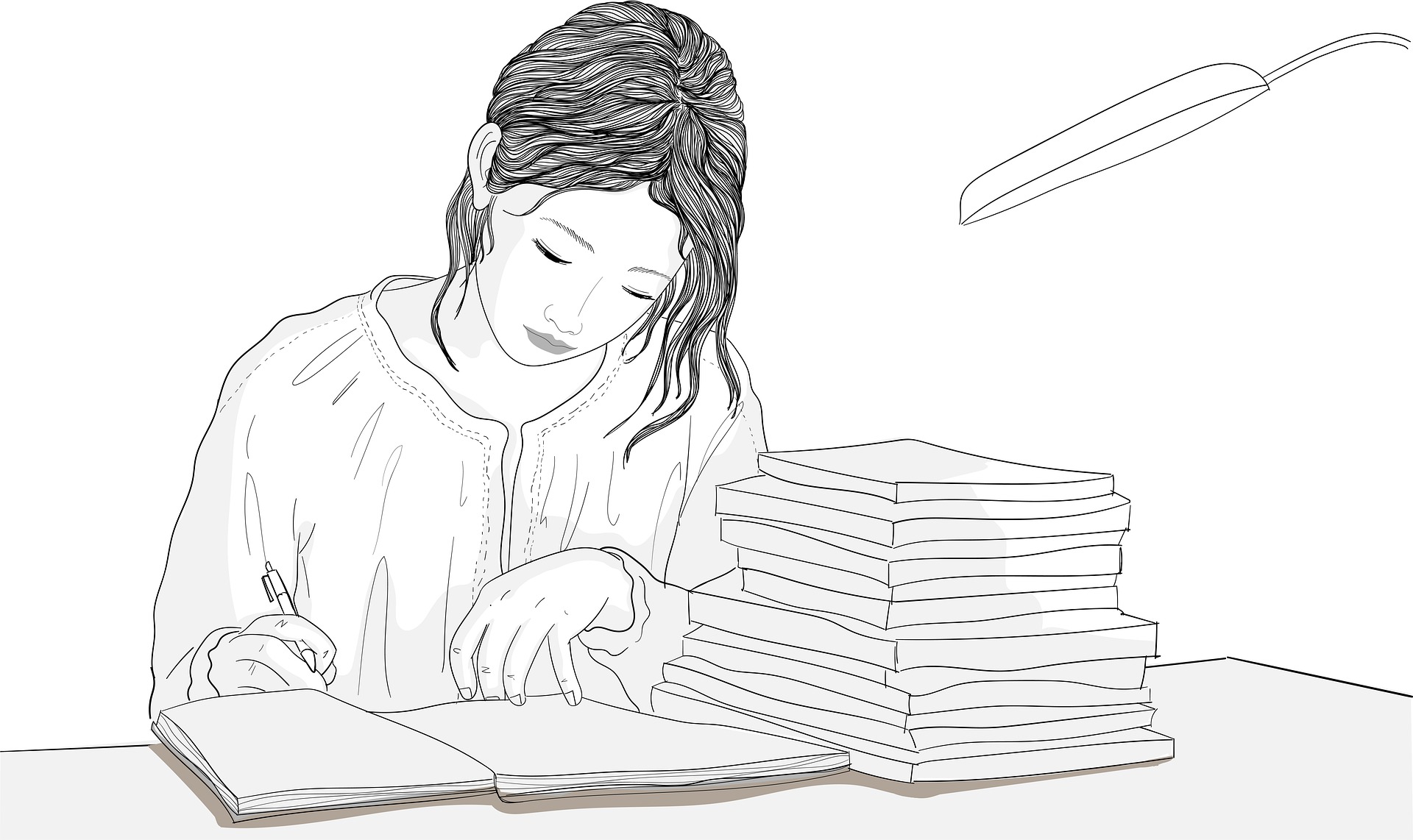The concept of reality is culturally and philosophically debated, notably through figures like Plato. In modern times, the emergence of technology and thinkers like Jean Baudrillard shifted perspectives, emphasizing “simulation” and “hyperreality.” Baudrillard argued that society now prioritizes simulacra—ideas detached from their original truths—over reality, reshaping our understanding of existence in an increasingly artificial world.
Authors: Alice Alves, Teresa Jardim, Sofia Liberatori, Elsa Godinho, Joana Pinheiro, Margarida Veríssimo
If once we were able to view the Borges fable in which the cartographers of the Empire draw up a map so detailed that it ends up covering the territory exactly (the decline of the Empire witnesses the fraying of this map, little by little, and its fall into ruins, though some shreds are still discernible in the deserts – the metaphysical beauty of this ruined abstraction testifying to a pride equal to the Empire and rotting like a carcass, returning to the substance of the soil, a bit as the double ends by being confused with the real through aging) – as the most beautiful allegory of simulation, this fable has now come full circle for us, and possesses nothing but the discrete charm of second-order simulacra. Today abstraction is no longer that of the map, the double, the mirror, or the concept. Simulation is no longer that of a territory, a referential being, or a substance. It is the generation by models of a real without origin or reality: a hyperreal. The territory no longer precedes the map, nor does it survive it. It is nevertheless the map that precedes the territory – precession of simulacra – that engenders the territory, and if one must return to the fable, today it is the territory whose shreds slowly rot across the extent of the map. It is the real, and not the map, whose vestiges persist here and there in the deserts that are no longer those of the Empire, but ours. The desert of the real itself.
In fact, even inverted, Borges’s fable is unusable. Only the allegory of the Empire, perhaps, remains. Because it is with this same imperialism that present-day simulators attempt to make the real, all of the real, coincide with their models of simulation. But it is no longer a question of either maps or territories. Something has disappeared: the sovereign difference, between one and the other, that constituted the charm of abstraction. Because it is difference that constitutes the poetry of the map and the charm of the territory, the magic of the concept, and the charm of the real. This imaginary of representation, which simultaneously culminates in and is engulfed by the cartographers mad project of the ideal coextensivity of map and territory, disappears in the simulation whose operation is nuclear and genetic, no longer at all specular or discursive. It is all of metaphysics that is lost.
No more mirror of being and appearances, of the real and its concept. No more imaginary coextensivity: it is genetic miniaturization that is the dimension of simulation. The real is produced from miniaturized cells, matrices, and memory banks, models of control – and it can be reproduced an indefinite number of times from these. It no longer needs to be rational, because it no longer measures itself against either an ideal or negative instance. It is no longer anything but operational. In fact, it is no longer really the real, because no imaginary envelops it anymore. It is a hyperreal, produced from a radiating synthesis of combinatory models in a hyperspace without atmosphere.
-Simulacra and Simulation, Jean Baudrillard, 1994, Precession of Simulacra
Reality is a concept that for now, has been in vogue, but that most probably will once again lose its elan, and return to the backstage of philosophy’s theater. However, the truth of reality itself will always continue to at least be true, and the debate might not always be pressing, however, the question will remain constant, and unanswered, as it seems that reality is a term as changeable as the passing of the seasons. The question has always been not only what is reality? But how can we recognize reality? What group of things do we consider reality, and which are a separate identity? What is exactly the nature of reality, and do we as humans can even perceive it?
Plato was the first to dwell and open the question, revealing that reality was something apart from what our eyes perceive, in pure contrast with the naturalist ideas. In the Cave allegory reality, meaning the truth, was only able to be reached through rational dialogue, and by the philosopher, and the apparent world did not represent reality, only an illusion of it. A reflection of the truth, and consequently of reality itself. However, millennia of philosophy seem to have not separated us from this idea, and that term was the only true advancement in this metaphysical question. It might seem that crossing two thousand years of history, and philosophy is irresponsible, and indeed it is, however, limited by the circumstances of the production of this essay, this jump is deserved and necessary.
The seventies brought new attention to reality, as a product of the never-seen technological advancements that the computer and related technologies brought, and what it entails in the world of fiction, and more prominent in the world of sci-fi. Works like the ones of Philip K. Dick, even though profoundly made for entertainment, were deeply philosophical and posed questions, and stirred ideas that would lead to a new generation of culture, in which the term of reality, and what it truly constitutes would be questionable, and not the so clear, and widely accepted naturalistic perspective.
In the 80s Jean Baudrillard a French philosopher would be one of the first to revitalize the idea of reality and the questions that it poses in the branch of philosophy. Baudrillard was born in 1929, in Reims, in a working-class family, and became the first of his lineage to attend university. He gave classes in several high schools, eventually publishing diverse works, like literary reviews, eventually turning into sociology, and publishing his first book “Le Système des Objets”. His writings would later gain popularity during the 80s and 90s while he was working as a professor at the University of Paris. Baudrillard would also criticize culture and society, and he would always have an aversion to computers up until he died in 2007, in Paris from cancer, he would state that only with a typewriter he could have a “physical relation to writing”. Baudrillard would establish key concepts of his thesis in 1981 in his most acclaimed work “Simulacra and Simulation”, on which this essay will focus.
For Baudrillard, the simulation is that that imitates reality, something fake that tries to emulate the truth. On the other hand, the simulacra are truth and precede the truth, the simulacra are an idea of something, that later can take form. A simulacrum would be the idea of a war, which would later take place. However, the idea of the war, before it happens, dissipated by newspapers, TV, and propaganda would be a simulacrum of the yet-to-happen war, the idea of war would be true, before the war, even though the idea is only based on signs or symbols. Baudrillard would defend that for now society only cares about the simulacrums, fulfilling the process of “precession,” in which our attention is focused on ideas, rather than invents. In a certain way, even now, society seems more interested in the possibility of war, rather than when it happens, especially in estranged lands. Man, always loses interest in a war that has already materialized, however, the thrill of the idea can keep him up all night.
This state in which man’s experiences are artificial has become in such a way detached from reality, that there is no need to pretend that these ideas, or simulacra are real, and instead, they take a life of their own, with no necessity to try and emulate reality. There is no need for a newspaper to advertise a real story if false rumors bring more readers. Even the readers, would take the thrill rather than a boring political resolution. Even though for Baudrillard we live in a hyperreality, in which simulacra precede reality and become the truth, with no need for reality as a means, Baudrillard defines the evolution of reality, and what mankind perceives as such as evolved through time. Reality was initially one of the images that represented reality in the most faithful terms. Afterward, the images denature the sense of reality, distorting its meaning, eventually becoming only an appearance, and eventually losing all resemblance to reality, as an ultimate step. The jump in which an object becomes destitute from reality is given, in Baudrillard’s opinion by the Industrial Revolution, when objects become copies, eventually leading to the hypermarket era we live in, in which objects, rather than commodities are tests, in which we, as buyers, responds to the demands and question of the object itself, and all its advertising, and the ambiance of the hypermarket itself. An expression of the detachment between objects and what it means to us in which objects are sold before even existing.
In “Simulacra and Simulations” Baudrillard goes back to Sci-Fi to clarify exactly the nature of this evolution of the real, and of truth, and the birth of the hyperreality. In the “Exactitude of Science” by Borges, cartographers become obsessed with details when elaborating their maps, eventually resolving to make their maps so detailed they need to be as big as the land they cover. The map laid over the empire will cause the degradation of the lands that lay under it. However as Baudrillard states “As the most beautiful allegory of simulation, this fable has now come full circle for us, and possesses nothing but the discrete charm of second-order simulacra.*” The empire will crumble and fade into misery, as the map continues as beautiful as before, however, even though a simulation, that with time grows farther apart from the reality that once was, it doesn’t stop being a simulation of what was once truth, the map is still a fake of reality. For the hyperreal to exist “The territory no longer precedes the map, nor does it survive it.”
For the hyperreal the concept, the reality of the once prosperous empire, even if it exists is irrelevant to the construction of such. Hyperreality is only emulating that the hyperreal is the truth, which is its only necessity. The people must believe the hyperreal is true, if it simulates something real is irrelevant, and antithetical to the concept of hyperreality. On the hyperreality Bradillard: “It no longer needs to be rational, because it no longer measures itself against either an ideal or negative instance. It is no longer anything but operational.” And by not having a pre-concent, it is not something even imagined, since imagination is born from experience and concepts. Hyperreality is not real, nor dreamed, it surpasses everything. And so, reality crumbles, replaced by the hyperreal: “Today it is the territory whose shreds slowly rot across the extent of the map.”
And so, through different phenomena such as capitalism, TV, alterations in living habits, like the hypermarket culture, and changes in language itself, we no longer care for reality, and we rather embrace the hyperreal, on which nothing is based, but that we accept as truth. Or at least so states Baudrillard.
Edited By: Mrs. Gomes de Carvalho



